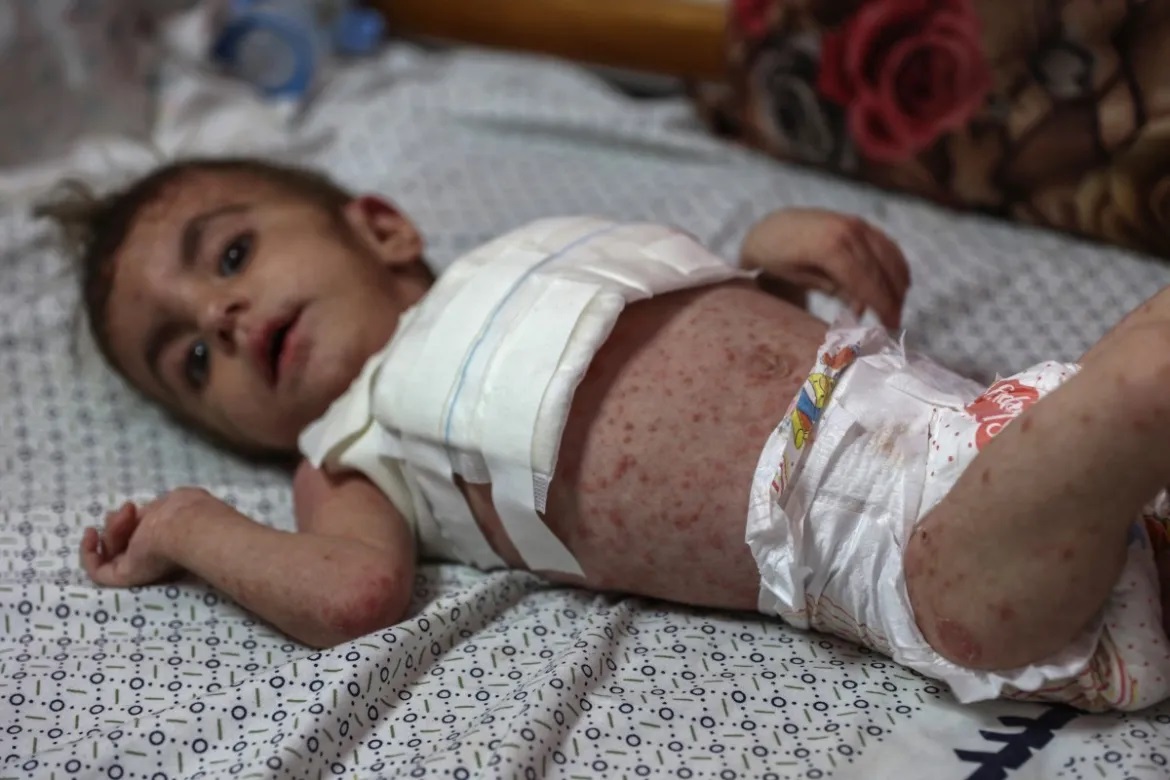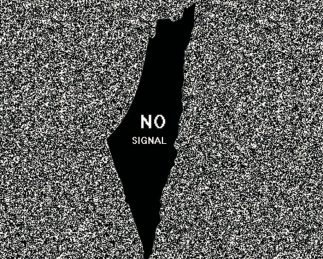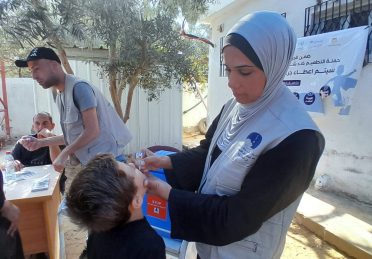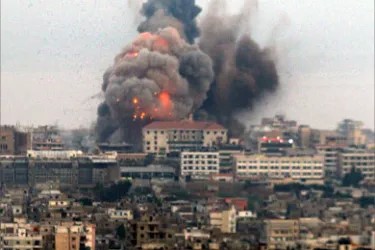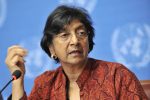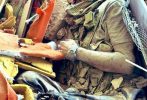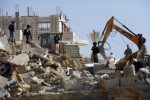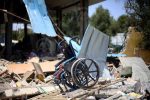GAZA, (PIC)
The child Muhammad Rajab suffers from a skin disease that belongs to the category of autoimmune diseases, which are expected to disappear as he grows older.
Muhammad (11 years old) had almost fully recovered from the disease last year, but the ongoing genocide in Gaza for the past 10 months has turned his life upside down.
Muhammad’s mother says her son was born with an autoimmune disease called “epidermolysis bullosa”, a rare condition that causes the skin to become fragile and develop sores even from minor injuries, heat, friction, or wearing rough clothing.
When he was born, the doctors reassured the parents that the disease is not chronic and that it will heal over time as his immune system develops, and this is what happened, as Muhammad’s skin condition improved year after year.
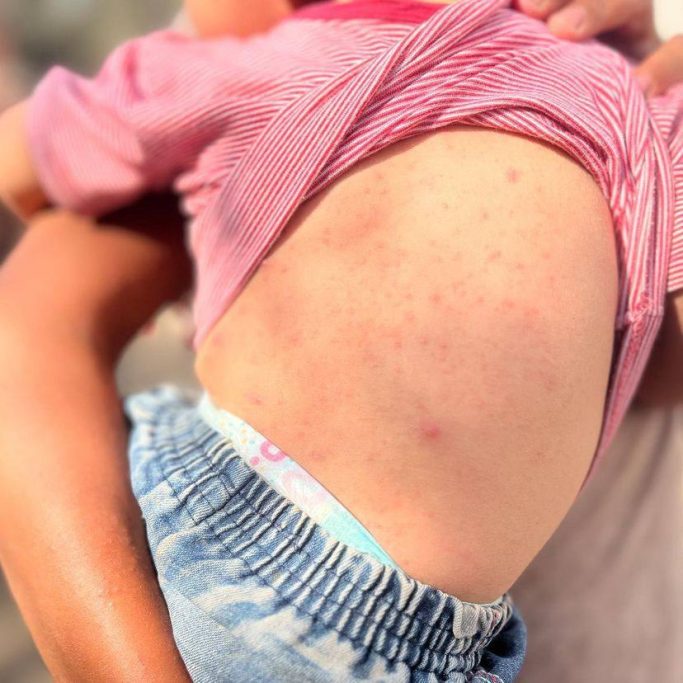
With deep sorrow, the mother tells the Palestinian Information Center (PIC) about Muhammad’s current condition after living for months inside a tent in a camp hosting thousands of displaced people, saying she doesn’t know how to deal with these sores.
She says, “Normally, I would use specific ointments to moisturize Muhammad’s skin, make him take cold baths, and have him wear cotton clothes, in addition to preventing him from going out in hot weather. But today, we can barely secure water for food or drinking.”
While pointing to the dire environmental reality around them, where waste is strewn on the road leading to the displacement camp, she confirms that Muhammad has to go out daily in the hot and humid weather to participate in fetching water for the tent.
This requires Muhammad to walk long distances and wait a long time until his turn comes, which increases sweating, accumulation of dirt, and promotes skin breakdown, according to the mother.
She points out that they do not receive healthy food, which is essential for building the immune system, and they rely on canned foods in their daily diet, which contain high levels of preservatives, and they do not get enough servings of vegetables due to their high prices.
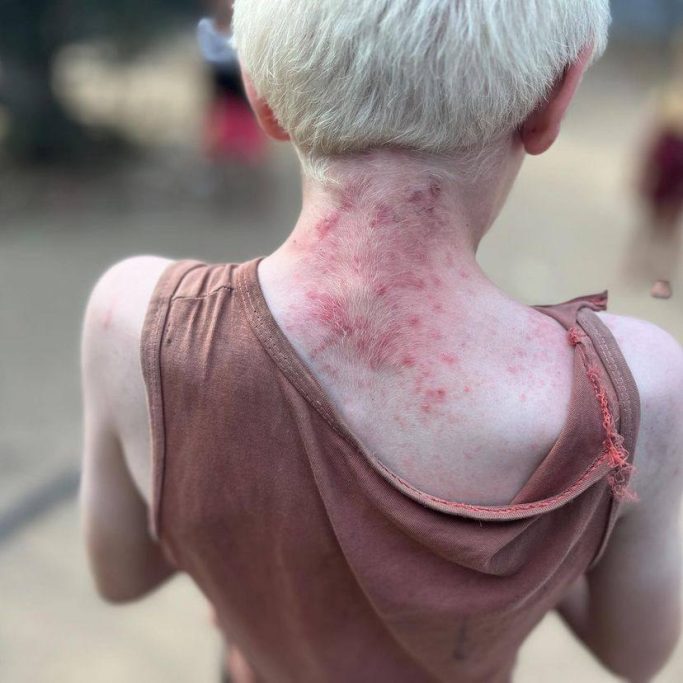
The health conditions in Gaza have deteriorated due to sewage overflow and contamination of drinking water, leading to the spread of skin and epidemic diseases, as sewage water seeps into the shelters and displacement centers, and the displaced suffer from the accumulation of garbage in the streets and the foul odors filling the streets.
With the scarcity of water and cleaning supplies such as soap and bathing facilities, and the collapse of the health system, the situation seems more complicated, as there is a lack of personal hygiene means in the midst of the overcrowding in the displacement centers and shelters, a situation confirmed by the girl Rawan Abdulaziz to PIC.
The displaced university student in Deir Al-Balah suffers from the spread of eczema on her hands and face, and she says that she has never suffered from this skin disease before the war or even a month ago.
Eczema is clearly visible on Rawan’s (20 years old) face, and she says she feels severe dryness in her skin and a strong desire to scratch it due to the itching that haunts her at night.
She points to her arms where numerous red spots have spread and scales have appeared between the fingers of her hands, explaining that her daily lifestyle does not give her a chance to recover from the disease that requires moderate use of water, in addition to staying away from polluted waters. “This is something I cannot do, for I help my mother wash clothes by hand and wash the dishes, she cannot do all of this on her own.”
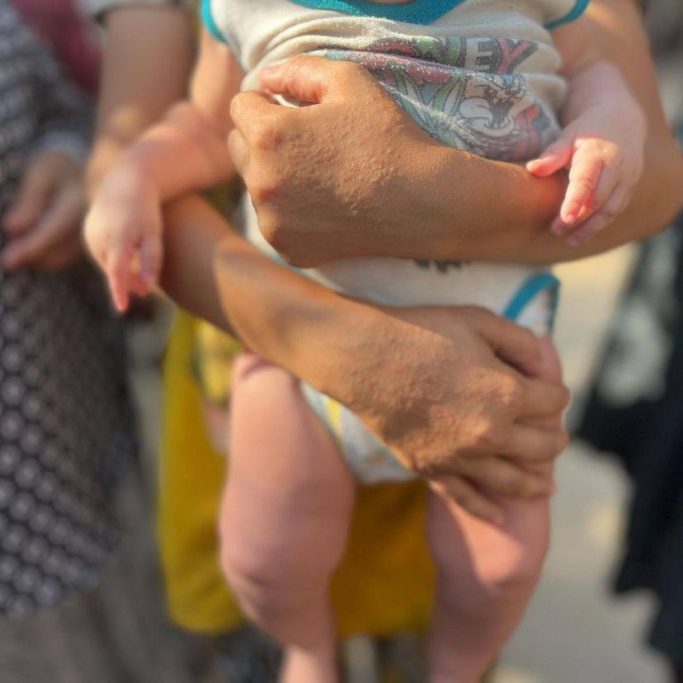
Rawan spoke about the scarcity of personal hygiene products in the markets or their high prices, in addition to their poor quality, noting that the price of a shampoo bottle ranges from 80-100 shekels, and a small bar of soap costs 15 shekels, which is a large amount given the need to provide other basic necessities such as food and drink.
Mohammed and Rawan are among an estimated 150,000 Palestinians suffering from skin inflammations ranging from scabies, chickenpox, lice, and impetigo, and other debilitating skin diseases, according to statistics issued by the Ministry of Health in Gaza.
The medical coordinator for Doctors Without Borders in Gaza, Mohammed Abu Mughaiseeb, says “Children are at risk; they play outside, touch anything, and eat anything without washing it.”
He explains that “the hot weather increases sweating and accumulation of dirt that causes skin rashes and allergies, which if scratched, lead to infections.”
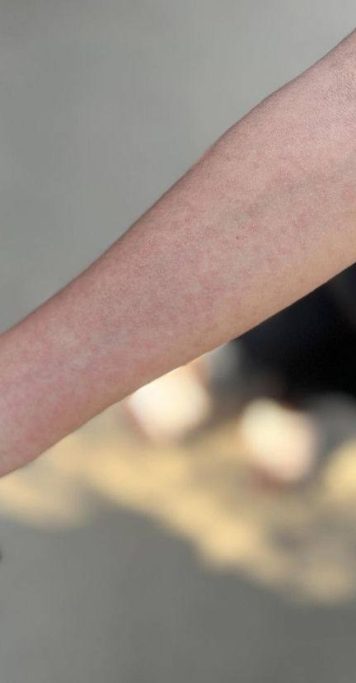
Doctors Without Borders fears the emergence of other skin diseases such as leishmaniasis, which can be fatal in its most severe forms, according to Abu Mughaiseeb, who affirms that the immune systems of Gaza’s children are in their worst condition due to malnutrition, making them more susceptible to disease.
Earlier, the United Nations Children’s Fund (UNICEF) said that “children in the Gaza Strip face difficult conditions amid skin diseases, unhealthy environment, and ongoing hostilities.”
Since the beginning of the extermination war on Gaza on October 7, 2023, about 96,417 people have been infected with scabies and lice, 9,274 cases of chickenpox, 60,130 cases of skin rashes, and 10,038 cases of impetigo, according to the World Health Organization.

